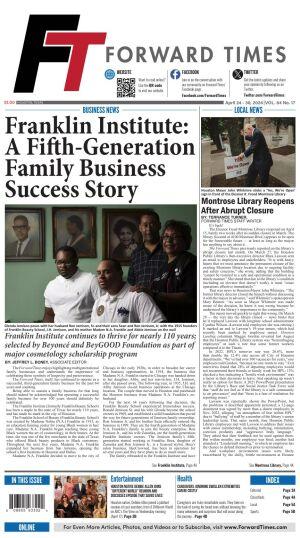In the dawn of this awakening moment our nation is experiencing, it is critically important we take a closer look at how we are addressing equity right here at home in Houston. We must examine equity from the perspective of providing financial support for our grassroots community organizations who are on the frontline stemming the tide of racial inequities at the root level. Not doing so discounts the actual lived experiences and perspectives that founding Black non-profit leaders bring to the community at the grassroots level.
Houston is renowned for its philanthropy, and as such, features an array of community organizations serving so many of the needs the Houston community faces in areas ranging from arts and education, to poverty and housing.
The largest non-profit organizations in Houston tend to enjoy tremendous support from Houston’s philanthropic community. However, a number of smaller organizations, who comprise the overwhelming majority of non-profits in Houston, do not enjoy the largesse of these generous donors who might help sustain their programs. This leads to significant challenges with sustainability and undermines our ability to provide services to smaller segments of society that the larger organizations are not suited to reach, or extend services to.
The two largest conduit funders in Houston, United Way of Houston and the Greater Houston Community Foundation, are responsible for a significant portion of the financial support that is provided to some of Houston’s largest non-profits. Furthermore, several private foundations, such as the Houston Endowment and Kinder Foundation provide a tremendous amount of funding to organizations who are well positioned via their board membership, or have been long-term beneficiaries of financial support. However, despite the willingness and generosity of these funders, far too many non-profits are left out.
In our continued push for equity, Houston’s philanthropists must demand that the United Way of Houston and the Greater Houston Community Foundation provide an accounting of what portion of their funding is directed to small non-profits led by Black founders. Furthermore, these organizations should establish benchmarks of their annual giving to be earmarked towards supporting causes aimed specifically at closing the equity gaps in the Black community.
It is also time for the philanthropic community to give a voice to Black people, whose background and perspective differ from decision makers, on how funding is directed towards addressing critical issues that have chronically plagued the Black community: education, healthcare, poverty, employment, crime, and restorative justice. In working at the grassroots level, Black founders and community organizations are often isolated, resource deprived, lack social connections within philanthropic circles, and do not have advocates to push for funding to be directed towards supporting their causes.
MLK stated that “we refuse to believe that there are insufficient funds in the great vaults of opportunity of this nation,” and we believe the same can be said for Houston. If we are to move towards a brighter, more equitable future for Blacks, then we must have a renewed commitment to achieving equity in every facet of human endeavor. And what greater endeavor could we demonstrate this through, than the one in which individual aspirations to transform communities has birthed so many mission-driven organizations, fighting with all they have to solve some of our most intransigent issues.
It is time for Houston’s philanthropic community to implement changes that help creditable non-profit organizations founded by Black leaders thrive in their work and play on equal footing. Community-centered organizations on the frontline are best poised to make significant impact at a grassroots level. We are at a most opportune time to permanently address equity, inclusion and reversing the tide of systemic issues that have long plagued the Black community, and expanding support to Black founders and community organization is a huge component of achieving that progress.
Dr. Reagan Flowers is an entrepreneur, cause-driven social changer, pioneer, and innovator. She is the founder and CEO of C-STEM Teacher and Student Support Services, Inc., Chief Knowledge Officer for Education Consulting Services, and serves as the Houston Community College Trustee for District IV. For more information on Dr. Reagan Flowers please visit: www.drreaganflowers.com.











Commented
Sorry, there are no recent results for popular commented articles.